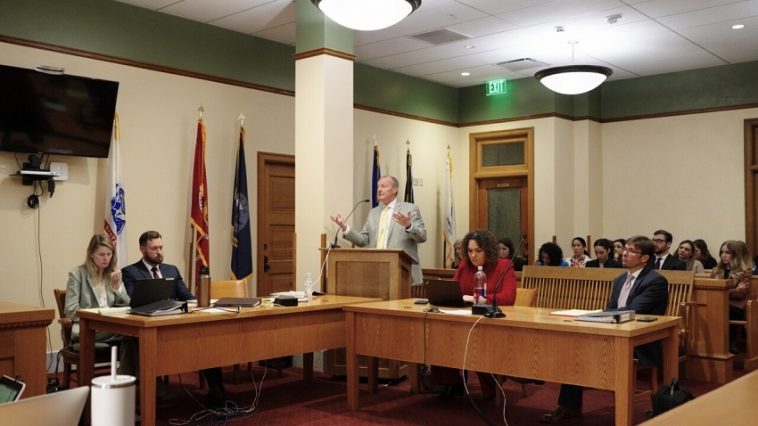Missoula, MT – A Missoula District Court judge heard oral arguments Thursday in a case that could have profound implications for transgender minors in Montana. The case centers around Senate Bill 99 (SB 99), a law that bans gender-affirming care for minors. The law, which has been temporarily blocked by a preliminary injunction, is currently on hold as the Montana Supreme Court has upheld the injunction pending further legal proceedings.
The state of Montana, represented by attorneys from the Attorney General’s office, argued that minors are incapable of providing informed consent for gender-affirming treatments such as hormone therapy and surgeries. The state’s defense claims these medical procedures can lead to long-term consequences, including infertility, body disfigurement, and potential mental health instability.
During the court proceedings, Judge Jason Marks engaged in a rigorous line of questioning, challenging the state’s position on the necessity and justification of the law. Judge Marks specifically sought clarification on how SB 99 aligns with the Montana Constitution’s right to privacy, questioning the state’s rationale for restricting access to care for transgender minors.
The American Civil Liberties Union (ACLU) of Montana, representing the plaintiffs, contends that SB 99 violates the Montana Constitution’s right to privacy, as well as its equal protection clause. The ACLU argues that the state has failed to present any compelling evidence that the ban is effective or necessary to protect minors. Additionally, the plaintiffs assert that gender-affirming care is a medically necessary treatment for those diagnosed with gender dysphoria, and such decisions should be made between patients and their healthcare providers, not dictated by the state.
In a statement issued to local news outlets, an attorney from the state’s office emphasized the government’s responsibility to protect children from what they described as “chemical and surgical mutilation,” referring to gender-affirming treatments. The spokesperson argued that the law is necessary to prevent irreversible harm to minors.
In contrast, Alex Rate, the ACLU’s deputy director, called the law a “blatant violation” of transgender minors’ privacy rights. Rate argued that the state must demonstrate that a law like SB 99 is not only necessary but also effective in safeguarding children—a burden that, according to the ACLU, the state has failed to meet.
The debate over SB 99 has captured significant attention as the state considers the balance between protecting minors and upholding constitutional rights to privacy and equal protection. If the law is ultimately upheld, it could set a legal precedent for similar legislation across the country, further impacting transgender rights and healthcare access for minors.
Judge Marks has yet to issue a ruling, but a decision is expected soon. The outcome of the case could have wide-reaching consequences not only for transgender individuals in Montana but also for the ongoing national conversation about the rights of transgender minors to access gender-affirming care.
As the legal battle continues, all eyes will remain on the Missoula District Court, where the future of SB 99 hangs in the balance.



